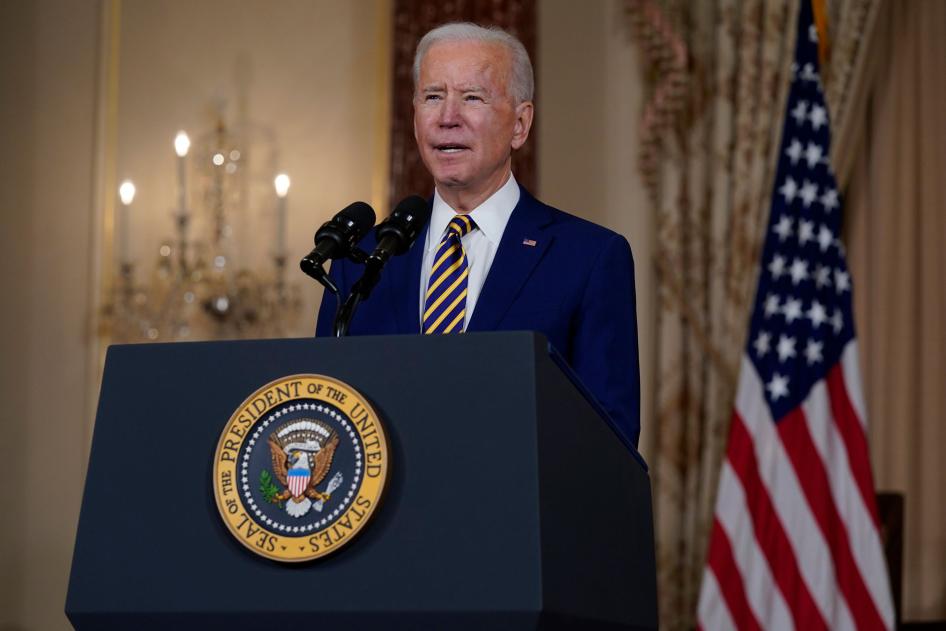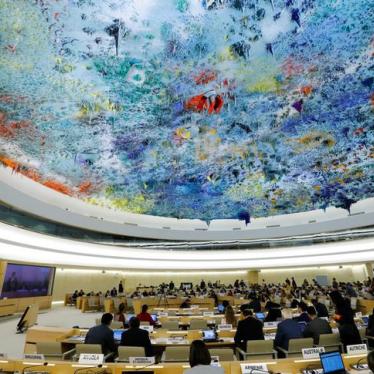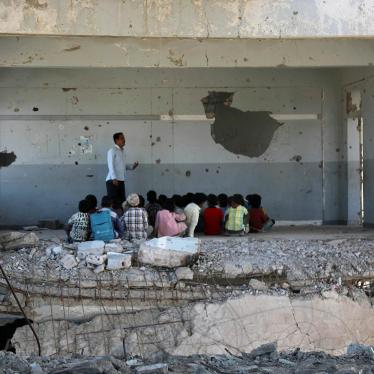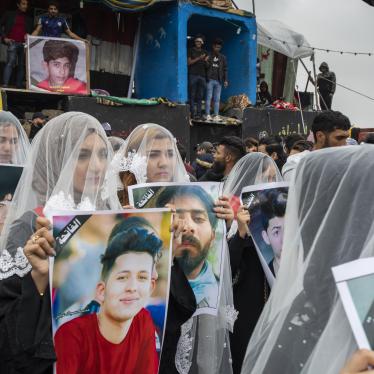On the campaign trail and during his first three months in office, President Biden promised a US return to a multilateral foreign policy that supports human rights. That is an important vision for the Middle East, a region often destabilized by authoritarians and corruption and waves of struggles for better protection of human rights. This region will put to the test the administration's willingness to redefine human rights as a US interest.
The President is off to a moderate start. He quickly began course corrections for some of the harm done during the previous administration. The US State Department reversed President Trump's last-minute decision to designate the Houthi rebel group in Yemen a terrorist organization. That designation, which many human rights and humanitarian groups criticized, was a serious threat to humanitarian aid in Yemen where six years of conflict has left "5 million people are on the verge of famine," according to the UN.
The US suspended arms sales for "offensive weapons" to Saudi Arabia and the United Arab Emirates (UAE) for their role in that destabilizing conflict. It also declassified an intelligence report on the killing of Jamal Khashoggi, a Saudi journalist living in the US who was brutally murdered in a Saudi consulate in 2018.
These actions show a willingness to incorporate human rights issues into decision making. But human rights is far from a central organizing principle of the new administration's foreign policy – at least so far.
The State Department notified Congress of a major arms sale to Egypt the same week Egypt detained the family of an Egyptian-American human rights activist and his family. President Biden declined to sanction Saudi Crown Prince Mohammad Bin Salman when US intelligence clearly showed he "approved" the decision for state agents to murder Khashoggi.
On April 2, the administration lifted the Trump-era sanctions on the International Criminal Court (ICC)'s prosecutor and another senior official in the prosecutor's office, which constituted a serious obstacle to the court's ability to carry out its crucial mandate. The Trump administration had imposed these sanctions to thwart investigations in Afghanistan and Palestine. While repealing the executive order that authorized the sanctions, however, the Biden administration made clear it continues to oppose the "ICC's actions" in the Afghanistan and Palestine situations. The court's prosecutor recently opened a formal Palestine investigation, which could provide a long-awaited path to justice for victims.
Changing course on some of the deeply ingrained instincts that have shaped many powerful officials and senior politicians' views on foreign policy for years will not be easy. To begin to address crises in the region, however, it will be critical for the President to make clear across the government that human rights concerns will be addressed consistently and taken into consideration on par with other US interests. Keeping two broad principles in mind could help bridge vision and reality. First, once and for all, end the US role in fueling serious abuses in Middle East conflict zones. Second, robustly and unapologetically support civic space and freedoms of expression and assembly across the region.
On stepping back from enabling human rights abuses, the US should not supply weapons that will be used to commit war crimes and other serious abuses. Given the level of abuses over the years by the armed forces of the UAE and Saudi Arabia in Yemen, the US should put an embargo on arms to these countries until the US can verify that they have stopped carrying out systematic human rights violations.
Beyond violent conflict, people in the Middle East are dealing with an array of rights restrictions and have limited civic space to change the status quo. One of the most common violations is the prosecution and imprisonment of activists for peaceful dissent.
In Saudi Arabia, Egypt, Iran, UAE, and Bahrain, being jailed for dissent is common. Courts across the region fall grossly short of fair trial standards, and there is limited if any redress for abuses people face in domestic judicial systems.
Women across the region trying to change laws and practices that limit their agency face harassment, intimidation, and arrest. Most countries in the region have some version of discriminatory personal status laws that do not grant women equal rights with men in marriage, divorce, child custody, and inheritance along with other existing barriers to full and equal participation in society. The same is true for ethnic and religious minorities as well as the LGBTQ community across Middle Eastern countries.
These are all issues the US should consider when engaging with Middle East partners. US support would be powerful for activists in their uphill and risk-filled efforts to curb these abusive practices. The US can start by prioritizing the protection of civic space across the region. For instance, the US can and should hold accountable government officials and others who threaten, prosecute, or harm human rights defenders and other peaceful activists across the region, utilizing tools such as the Khashoggi Ban and Global Magnitsky sanctions (as opposed to broad sectoral sanctions that harm people in the region.).
The US can also help break through the isolation of civil society across the region by supporting regional cooperation and solidarity among those working on similar rights issues. This might have to happen with indirect US involvement, such as support for academic engagement and convening spaces.
But, at minimum, the US should move from a single focus on support for civil society in countries that have an adversarial relationship with the US like Iran to encouraging a civil society empowerment planning that has a regional breadth. Those who are working in these extremely challenging environments on the ground to push for rights improvement in their country can also be empowered to develop initiatives that seek to overcome existing regional tensions.









